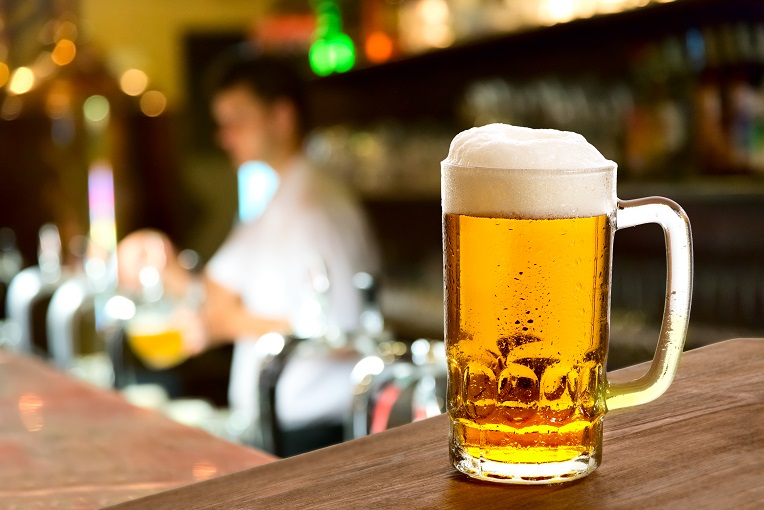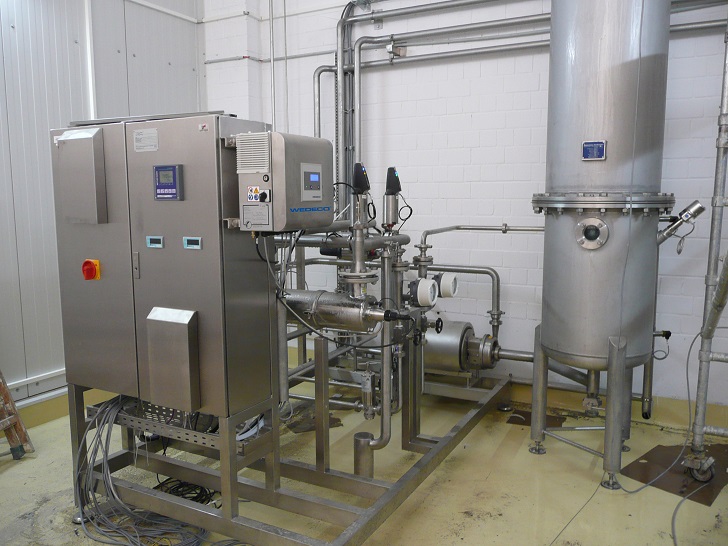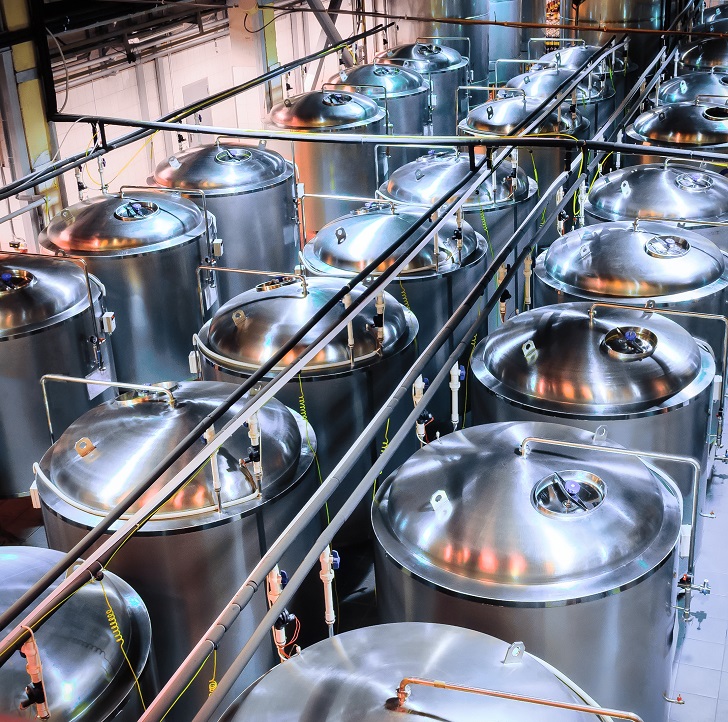

Like all processes, the manufacture of beer goes through a number of stages each requiring a different set of production tools. Xylem is able to provide all these for breweries, from the water treatment via filling to wastewater disposal.
There is a lot going on in breweries, but whether it’s supplying water for bottling, tank cleaning or wastewater disposal the transport of liquids is required. Reliable and energy efficient pumps are critical in breweries. If one of them needs an unscheduled service or even to be replaced, this will cause problems through-out the brewing process.
First class quality must be the main ingredient of the high-grade beers. Much water is also needed for heating and cooling as well as for the clean in place (CIP) process, even though brewers have drastically reduced the water consumption for these secondary processes.
No chemicals Lowara’s borehole pumps bring water up from great depths. A Lowara e-NSC standard water pump can transport it to the water treatment plant. Efficient hydraulics means that the pump surpasses the ErP2015 specifications. Gravel filters rid the well water of particles and modern reverse osmosis technology aims to ensure consistent quality brewing water.
Lowara's multi-stage e-SV centrifugal pump, which can be used as a single pressure pump or as a pressure booster, sends the water through the pressure pipes. Cleaned and softened without the harmful use of chemicals, the pump water enters a UV disinfection system with Wedeco technology, another Xylem brand. Some breweries already employ the latest model, the Spektron UV disinfection system. The flow guidance has been improved by the developers and because the UV output is always adjusted to the water quality and throughput via a control, the operating costs are particularly low. The quality of the water is monitored during and at the end of the cleaning process by WTW's online measuring technology, a company that also belongs to Xylem.
Retractable fittings for the pH probes, which can be used preconfigured, facilitate the work here. And at the end of the fresh water treatment, the multi-parameter system Multiline 1000 offers a measurement of six parameters simultaneously, as occurs in drinking water monitoring. WTW technology is also recommended for the brewery laboratory.
Step control As part of a so-called step control, a sample should be taken and analysed after each process step, such as pumping from the fermenter to the storage cellar, and of course immediately before bottling. This ensures the quality of each batch. The samples are then filtered and freed of carbon dioxide by heating, before pH, alcohol content, wort and many other values are determined.
Pumping the purified water into the brewhouse in the hot section of the brewery is done by a Lowara centrifugal pump. Several hygienic beer pumps from Xylem brands, such as centrifugal pumps from Jabsco, are in use there. EHEDG certified units are a must in this production process. I
n addition, the pumps must not introduce oxygen into the process. Pumps that are suitable for CIP and SIP cleaning are the first choice in this hygienically demanding process. All components which come in contact with product are made of 1.4404 stainless steel. Even the high requirements of EC Regulation 1935/2014 can be met by Jabsco.
Wort boiling Various Jabsco stainless steel centrifugal pumps are used during wort boiling, for example for pumping the mash into the lauter tun and into the wort kettle. A type Hy-Line+, food-grade rotary lobe pump can take over the hop dosing as well as the pitching of the wort. The pump series are modular to help find the right connection variant.
The wort reaches the so-called whirlpool, in which hop residues, coagulated protein and other suspended matter are separated out, via a centrifugal pump again. Then it goes into the wort cooler before yeasts are pitched at relatively low temperatures. Gentle conveying is provided by the Hy-line+ rotary lobe pump, whose low shear stress is designed for use with yeast. One of the Jabsco peristaltic pumps would be equally suitable.
Breweries use Jabsco food-grade rotary lobe pumps for delivery to the main fermentation tank. To pump the new beer, they use mobile Jabsco centrifugal pumps. After several weeks of storage, the beer is now filtered. If the brewer uses diatomaceous earth which is an extremely abrasive medium, Xylem recommends sliding ring seals made of silicon carbide (SiC) in the particularly gentle centrifugal pumps.
Canned beer Short-time heat treatment (STHT) preserves the portion of the beer to be canned. Lowara multistage high-pressure pumps generate the necessary pressures in the boiler circuit. Jabso hydienic, frequency-controlled pumps are used here to extract the beer as well as in the bottling plant. A rotary piston pump from Xylem extracts products with a high gas content when used in conjunction with an upstream screw pre-stage. It can also be used for the CIP return, so saving the brewery a pump.
Pumps from the Xylem portfolio are used in the cleaning systems for bottles and barrels. Jabsco air-operated diaphragm pumps supply detergents. Standard pumps and high-pressure pumps as well as multistage Lowara centrifugal pumps are also used in there. In CIP applications, the Lowara e-series energy-saving centrifugal pumps with their IE3 motors are particularly convenient.
The drum and bottle fillers are also equipped with Xylem technology. The tunnel pasteurizer with heat exchanger connected to the bottle filler is supplied with fresh water and circulating water at different temperatures via Lowara centrifugal pumps.
Wastewater pumps The wastewater treatment plant closes the circle. Flygt pumps are designed for pumping waste and rain water. A ventilation system with Sanitaire aerators ensures sufficient oxygen supply, while infinitely variable Flygt submersible agitators support the biological process in the treatment by creating additional horizontal flow in the basin.
The deposit-free and specifically shaped propellers offer very high thrust performance with low energy consumption, which means particularly high efficiency. A large number of WTW sensors for all wastewater parameters, together with the WTW-IQ-Sensor-Net, ensure a seamless monitoring process.
Please note, not all of these products are available in the UK & Ireland, but alternatives can be offered.






